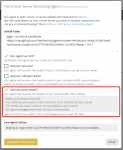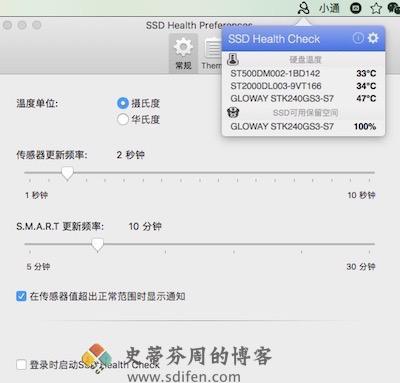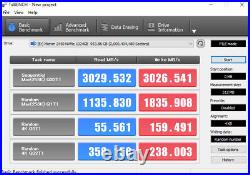

- #Nvme ssd health check install
- #Nvme ssd health check windows 10
- #Nvme ssd health check portable
- #Nvme ssd health check license
- #Nvme ssd health check free
#Nvme ssd health check license

#Nvme ssd health check portable

Top 10 SSD Health Check and Diagnostic Tools Read more about hard drive benchmarking tools. It can even calculate the accuracy of write/read data provided by the manufacturer after testing the speed. The tools allow for improvement or tuning SSDs for different demands, and utilizing them may improve the drive performance from losing some storage capacity.įor example, the SSD/Disk benchmark feature is common for most SSD health checkers, allowing users to measure SSD performance by the transfer speed test. Some SSD health check tools enable garbage collection and other parameters to optimize performance. Some can even detect bad sectors on an SSD that indicate SSD condition. SSD health check tools can help to quickly check whether an SSD is in good health, showing the current state and an SSD health status. What Are SSD Health Check and Diagnostic Tools? Most SSD health check tools test the transfer speed, measure performance, optimize the SSD, and even allow secure erasing of SSD data. There are many SSD health check tools, and the most effective tools are often free and provided by SSD manufacturers. So, an SSD health check is essential, especially for large organizations where data transfer speed plays an important role.

However, the performance of the SSDs can decrease over time. While HDDs’ data transfer speed is generally 30 to 150 megabytes per second (MBps), a standard SSD can perform at speeds of 500 MBps, and NVMe SSDs can achieve up to 3,000 to 3,500 MBps. IMPORTANT: The feature currently supports NVMe SSDs only.Solid-state drives (SSDs) have already taken the place of hard disk drives (HDD), as SSDs perform faster compared to conventional HDDs. To check the build number, type winver.exe in Start/taskbar search and press Enter key.
#Nvme ssd health check windows 10
NOTE: As said at the beginning of the post, this is a new feature currently available to users testing Windows 10 Insider builds (20226 and above) only. It only indicates that the drive has completed write/erase cycles predicted by the manufacturer. Also, note that if Windows 10 displays the estimated remaining life of an SSD as 0%, that does not necessarily mean that the SSD has failed or about to die. How does Windows 10 calculate the estimated remaining life of SSDs?Īccording to Microsoft, Windows 10 uses approximate percent used of manufacturer’s prediction of drive life to calculate the estimated remaining life of SSDs. These features currently support only internal NVMe SSDs only. No, the temperature and health monitoring functions are not available for external drives such as pen drives and memory cards.
#Nvme ssd health check install
This means that you will not need to install third-party software to monitor the health of SSDs as Windows 10 also alerts users when the SSD is about to fail or its health deteriorates to a certain percentage. With the new feature, you can view the SSD health, available spare, and current temperature. The good thing is that Windows 10 now offers (currently available in Windows 10 Insider build number 20226 and above only) you view more information about SSDs. In addition to tools from SSD manufactures, there are numerous third-party applications around to monitor SSD health, performance, and temperature.


 0 kommentar(er)
0 kommentar(er)
